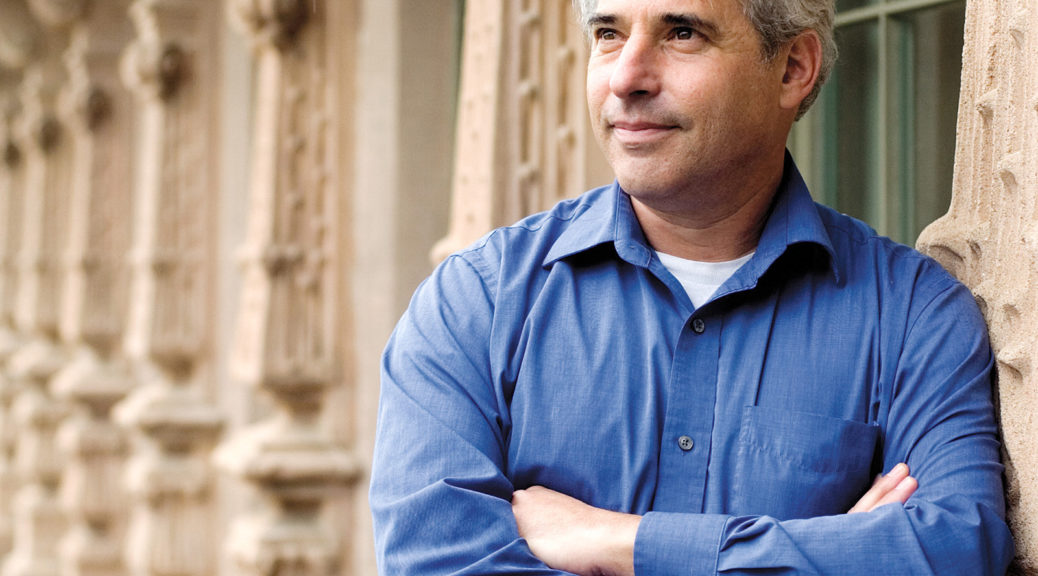
MY LAI WAR DISASTER DRAMATIZED
Berger Monodrama Tears at Complacency
STANFORD—Jonathan Berger’s new operatic monodrama “My Lai Lullaby” is a searing cry in the wilderness over one of the darkest incidents of the lamentable Vietnam War. I wish it could have been unveiled 40 years ago, when the war, its unprecedented protests, and the bringing down of Richard Nixon were still a deeply divisive force punching in America’s face and boring holes in our skulls.
Berger’s ingenious creation calls on the blending of string quartet and traditional Vietnamese instruments, with the stentorian tenor-narrator Rinde Eckert at the heart of the action. However depressing the real-life tale of the US military flagrantly mowing down hundreds of civilians at the village of My Lai (pronounced “Me-Lie”), however distant today, the Berger work is a powerful musical statement.
This explores a familiar vein of Berger’s creativity, repeatedly focusing on The Victim, the morbid, the maladjusted, and the slightly berserk sides of our civilization. Not exactly the everyday audience’s cup of jasmine tea.
But, he has a unique, eloquent and often understated way with the string quartet. The group focuses on the lower range of each instrument, as if to eschew all flamboyance, but neatly introducing each scenelet. While the cellist (Sunny Yang here) produces sustained and meaningful pedal points, the cohorts produce a tightly-wound counterpoint. The anti-virtuosic thrust makes the message that much more effective. When there’s a tremolo outburst, it’s followed by pregnant silences. The net effect is of a piece running over an hour long that really works but may be too monochromatic in mood to gain wide acceptance. For any one’s heart, it is a very heavy dose.
Berger’s greatest gift might be the skill of interweaving the Vietnamese soloist with the Western-style Kronos Quartet (amplified). Ms. Van-Anh Vo plays the three traditional Far-Eastern percussion instruments deftly, one of them sounding like an electronic cross between a zither and a theremin. These contrasting musics interact, but also serve to underline the huge cultural gap between the US-Viet cultures which accounted for fundamental problems in coping with divided Vietnam and the huge US role in the lost war.
But as the sole singer-speaker on stage, Eckert IS the opera—a massive and intimidating figure with the look and sound of menace. A skilled actor, he deploys his voice through both tenor and falsetto ranges, at times suggesting imbalance. The trio of essential elements—quartet, the virtuosic Ms. Vo, and Eckert at the center—make a powerful and unique trifecta, warmly received at the Bing Center on Oct. 10.
The text by Harriet Chessman takes us through the descent of a happy US copter flyer descending to the killing fields with growing horror, later castigated for his whistle-blowing and attempts to save lives of innocent My Lai civilians. As with the victims, his war wounds never healed.
A Stanford music prof, Berger, 61, had previously created the music drama “War Reporter.” His “My Lay Lullaby,” given a concert version here with a modicum of sets and lighting effects, is slated for a fully staged performance at the Harris Theater in Chicago next year…A prize-winning emigree performer from Vietnam, Ms. Vo has been living in the S.F. Bay Area for the past 14 years.
A Stanford Live presentation, one of many at Stanford University. For future events: (650) 724-2464, or go online.
©Paul Hertelendy 2015
#
Paul Hertelendy has been covering the dance and modern-music scene in the San Francisco Bay Area with relish — and a certain amount of salsa — for years.
These critiques appearing weekly (or sometimes semi-weekly, but never weakly) will focus on dance and new musical creativity in performance, with forays into books (by authors of the region), theater and recordings by local artists as well.
#